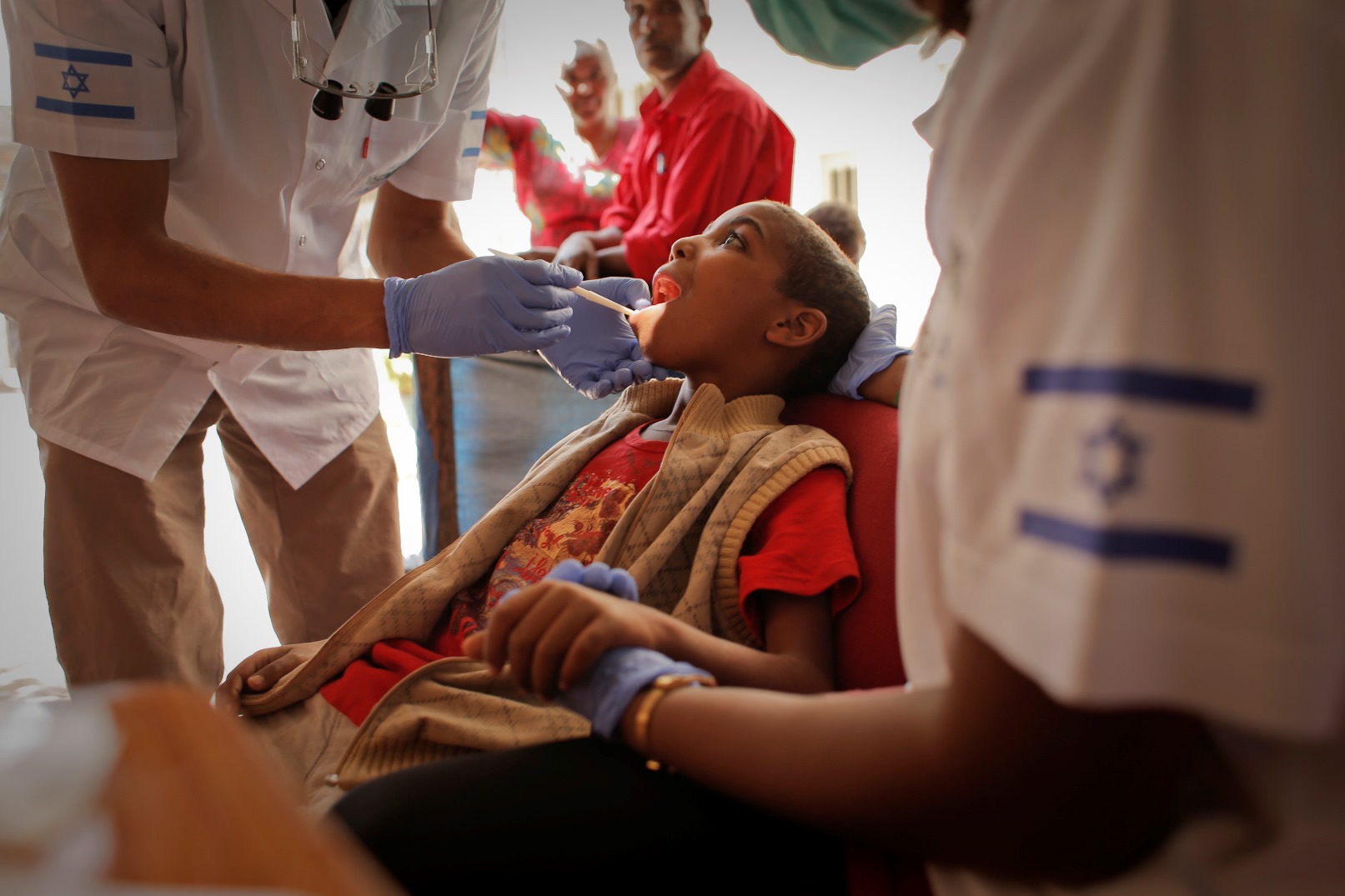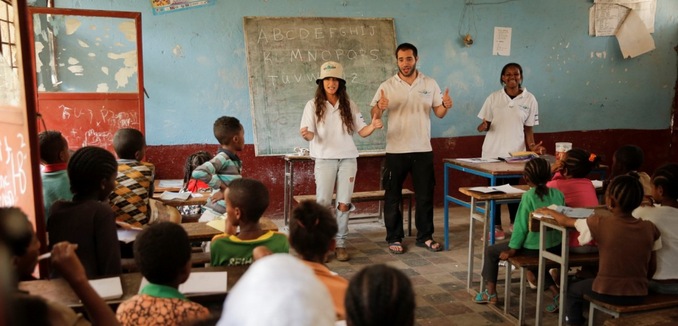Three Israeli army officers set out on an adventure to Thailand in 2012 after completing their service in the Israel Defense Forces.
Nothing unusual here; an estimated 40,000 post-army Israelis go backpacking every year for extended periods to cheap and exotic destinations in Asia, Africa, or Latin America.
But these three had a new idea: to capitalize on the large number of Israeli travelers already in needy countries, in order to make a positive difference and show the world the compassionate face of former IDF soldiers, says Gili Cohen, now 29, cofounder of Fighters for Life (in Hebrew, Fighters without Borders).
Since its founding in 2013, FFL has been organizing annual volunteering missions for young Israeli backpackers heading to Gondar, Ethiopia; Buenos Aires, Argentina; and Mumbai, India.
Applicants accepted into the program begin preparing six months before departure. They meet with past FFL volunteers, do some volunteering in Israel, and devise an agenda for their two-week stay, usually including agriculture and construction projects as well as teaching English, math, music, and personal hygiene to children in orphanages or slums.
FFL returns to work with the same children the following year to assure continuity and a greater impact.
Donors, mostly from the South African Jewish community, underwrite the $12,000 bill for each mission. Costs are low because the 25 participants are flying on their own dime.
![[Photo: Fighters for Life / Facebook]](http://www.thetower.org/wp-content/uploads/2016/09/12821396_985997531488303_3015096497133860411_n.jpg) Cohen tells ISRAEL21c that FFL is seeking a sponsor to expand the program to Mexico. “Our dream is to volunteer also in Brazil, South Africa and Bolivia,” he says.
Cohen tells ISRAEL21c that FFL is seeking a sponsor to expand the program to Mexico. “Our dream is to volunteer also in Brazil, South Africa and Bolivia,” he says.
“I don’t think there is any other place in the world where people so young thought of something so noble,” said FFL’s president, Maj. Gen. (ret.) Eliezer Shkedi, former commander of the Israel Air Force and CEO of El Al Israel Airlines.
Cohen believes Israelis have unique tools at their disposal to organize such an endeavor: a Jewish connection with the worldwide network of Chabad Houses run by the Lubavitcher Hasidic movement; enthusiastic support from Israel’s Foreign Ministry; and an immigrant population speaking many different languages.
“When we decide to establish a volunteering program in a country we first contact the Chabad House and the Israeli embassy or consulate there and get their full cooperation and partnership,” he says. These bodies find local partners for the Israelis.
And because volunteering abroad is of limited value if you don’t speak the language, each cohort of 25 includes five volunteers fluent in the local tongue.
In Ethiopia, an orphanage head told Cohen that 25 volunteers had recently come from Japan, and though she was appreciative, they couldn’t communicate verbally with the children. In contrast, FFL’s delegation included five Amharic speakers from Israel’s large Ethiopian Jewish community.
“Our workshops are not just about making us feel good but about making a real change in the communities,” Cohen says.
 This month, FFL is sending its third annual volunteer expedition to work with children in the slums of Mumbai and carry out agricultural and renovation projects there. On weekends, they’ll volunteer and interact with the Mumbai Jewish community.
This month, FFL is sending its third annual volunteer expedition to work with children in the slums of Mumbai and carry out agricultural and renovation projects there. On weekends, they’ll volunteer and interact with the Mumbai Jewish community.
FFL sent its first cohort to the San Fernando slum in Buenos Aires last year. Mornings are devoted mostly to renovation and building projects, and afternoons are dedicated to teaching. Here, too, weekends are spent strengthening ties with the Jewish community, mainly boys affiliated with the local Maccabi youth group.
Activities in Gondar began in April, and included teaching blind and mute kids. The Israelis renovated a shelter-residence in Makala, north of Addis Ababa, and brought along a dentist to treat children living in the shelter and provide training for local healthcare professionals. Maccabi-dent, the dental arm of one of Israel’s national health-maintenance organizations, donated 200 toothbrushes. “We bring whatever the communities ask for—dentists, doctors or cardiologists,” says Cohen.
FFL has 10,000 followers on Facebook and Cohen sees great growth in its future.
“We now go to each place once a year but we hope as we get more financing we can do it three times a year,” he says. “Our funders are good people who want to show the world the real Israel and realize the vision of our nation.”
(via Israel21c)
[Photo: Fighters for Life ]




